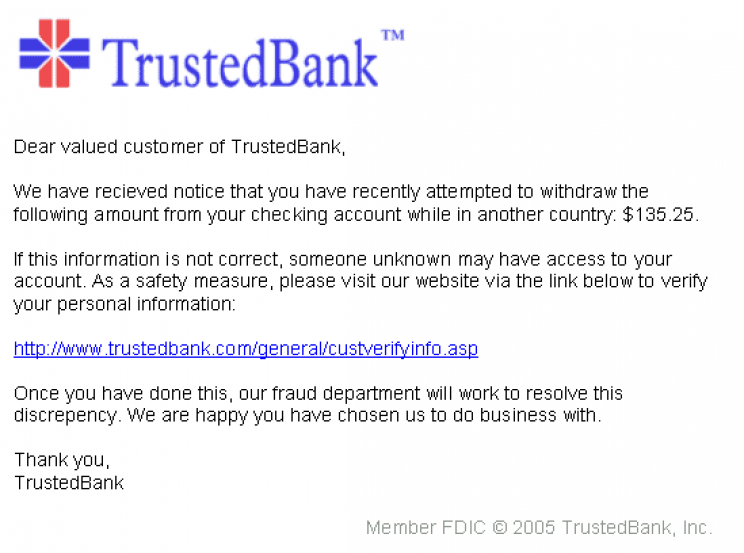The Internet’s Biggest Scams and the Tech to End Phishing
Phishing is one of the most popular hacking methods used by cybercriminals. It’s easier to implement than other techniques and it’s considerably effective. According to ProofPoint, 74% of American businesses experienced a successful phishing attack during 2020.
There are several variants of phishing but email phishing represents up to 96% of phishing attacks. Email phishing consists of supplanting reputable or trusted senders to trick the victims into revealing sensitive information or delivering payments.

The pretexts are infinite.
Generally, these false emails tend to create a sense of urgency for the user so that they provide important data without thinking about it twice.
For instance, they might try to mimic a typical PayPal email and tell you that your account has been compromised and you need to confirm your password as soon as possible. They may redirect you to a link for a website that looks just like PayPal, and if you don’t find any sign that it’s not the real website (such as a misspelled URL), you would most likely supply hackers with your login data.
Consider this example as a starting point and imagine how serious phishing can be —especially because anyone can be targeted by these scammers.
Many times, phishers simply send these fraudulent emails to thousands of random addresses and wait for people to fall into the trap. But other times, phishing attacks are more targeted and sophisticated – often just the first step in a complex scam or attack which can lead to an incredible amount of financial losses and data breaches.
Google and Facebook
Between 2013 and 2015, Google and Facebook unknowingly paid $123 million to phisher Evaldas Rimasauskas. The 50-years-old Lithuanian attacker repeatedly impersonated Quanta, a Taiwan-based hardware vendor that had business relations with both companies. The hacker had even registered a company with the same name in Latvia.
Using fake invoices, Rimasauskas tricked Facebook and Google employees into sending him money to bank accounts located in Cyprus and Latvia.
Eventually, the scam was discovered and Rimasauskas was arrested, extradited to the…


